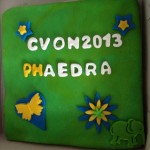On Tuesday May 26th, the Q2-meeting will be held at the VUmc in Amsterdam. The meeting will start at 13:00 and end around 17:30 (Programme). The Scientific Advisory Board will be present and give two presentations for our researchers.
Category Archives: Premature aging of the lung vasculature explains the progression of pulmonary arterial hypertension, and this ‘irreversible’ process can be reversed by a new anti-aging drug
March 10th 2015 Consortium Meeting in Groningen
On Tuesday the 10th of March 2015 the consortium meeting will be held at the UMC in Groningen, starting at 13:00
November 25th 2014 consortium meeting at EMC
At Tuesday November 25th we will have the last consortium meeting for 2014 at the Erasmus Medical Center in Rotterdam.
September 23th consortium meeting at LUMC
At the 23th of September the consortium meeting will be held in Leiden.
September 25-26th Phaedra Summer School
The Phaedra summer School will be organized on September 25-26 at Terschelling.
At 13:15 the boat leaves from Harlingen to Terschelling.
June 30th 2014 Consortium Meeting in Amsterdam VUMC
The consortium meeting for the second quarter 2014 will be held at the VUMC in Amsterdam. The meeting will start at 13:00 with lectures by Victor van Hinsberg and Nick Morrell followed at 16:00 by the presentations of the Phaedra members showing their progress in their work package.
February 7th 2014 Consortium Meeting in Groningen
The second consortium meeting of the Phaedra project has been held on the 7th of February at the UMC in Groningen. All partners gave a presentation on their progress in their work package and on their future plans to reach the milestones. Tieneke Schaaij-Visser from the Hartstichting was present and gave a nice overview on the work of the Hartstichting.
The meeting was continued with the “Cell Culture Meeting” where several protocols on cell culturing were discussed.
September 30th 2013 Kick-off Meeting Phaedra
The Phaedra consortium started 1st September 2013. The kick-off meeting was held on September 30th 2013 at the VUMC in Amsterdam. All partners were present and explained their plans on how to reach the deliverables and milestone within their Work Package.
Financial, organizational issues and planning were also discussed to ensure a well organised consortium.
 The Phaedra project being granted by CVON was celebrated with a wonderful cake.
The Phaedra project being granted by CVON was celebrated with a wonderful cake.
